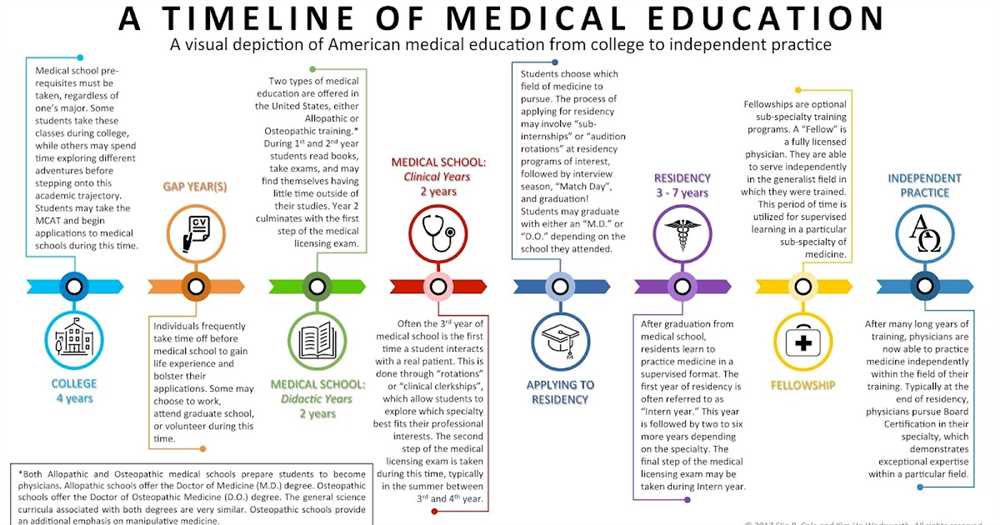
As the end of the semester approaches, biology students everywhere are preparing for their final exams. The general biology final exam is a culmination of all the knowledge and skills acquired throughout the course, covering a wide range of topics from cellular biology to ecology.
During the final exam, students must demonstrate their understanding of key concepts such as the structure and function of cells, the principles of genetics, and the mechanisms of evolution. They will be tested on their ability to apply scientific methods and analyze experimental data to draw conclusions and make predictions.
Additionally, the general biology final exam often includes questions that require students to think critically and apply their knowledge to real-world scenarios. This may involve understanding the impact of human activities on ecosystems, evaluating the ethical implications of genetic engineering, or discussing the role of biodiversity in maintaining ecosystem stability.
Preparing for the general biology final exam requires diligent studying and review of the course material. This includes reviewing lecture notes, textbook readings, and laboratory experiments. It is also helpful to practice answering sample questions and engaging in group study sessions to reinforce understanding and clarify any remaining doubts.
What to Expect on Your General Biology Final Exam
Preparing for your general biology final exam can be a daunting task, but with the right approach, you can be confident and ready to tackle any challenge that comes your way. To help you prepare effectively, it’s important to have a clear understanding of what to expect on the exam.
The general biology final exam will likely cover a wide range of topics that you have studied throughout the course. This may include concepts such as cell structure and function, genetics, evolution, ecology, and physiology. It is important to review your lecture notes, textbooks, and any supplementary materials that were provided throughout the semester to ensure you have a solid understanding of these key topics.
- Cell structure and function: Be prepared to demonstrate your understanding of the structure and function of cells, including the organelles and their roles in cellular processes.
- Genetics: Expect questions on concepts such as Mendelian genetics, inheritance patterns, DNA replication, and genetic engineering.
- Evolution: You may be asked to explain the principles of evolution, including natural selection, adaptation, and how new species arise.
- Ecology: Show your knowledge of different ecosystems, population dynamics, and how organisms interact with their environment.
- Physiology: Be prepared to answer questions related to the functioning of the human body, including topics such as the respiratory, circulatory, and digestive systems.
Additionally, you may encounter questions that require you to apply your knowledge to real-life scenarios or analyze data. It is important to practice these types of questions to ensure you are comfortable and confident in your ability to think critically and apply your knowledge to different situations.
Remember to manage your time effectively during the exam and carefully read each question before answering. Pace yourself, and if you are unsure about a particular question, make your best educated guess and move on. Stay calm and focused, and trust in the hard work and preparation you have put in throughout the semester. Good luck on your general biology final exam!
Format of the Exam

General biology final exam is a comprehensive assessment that covers various key topics from the entire semester. This exam is designed to evaluate students’ understanding and application of fundamental concepts in biology.
The exam consists of multiple-choice questions, short answer questions, and possibly some essay questions. The multiple-choice section includes a set of questions with several answer options, where students need to choose the correct one. Short answer questions require students to provide concise explanations or definitions. Essay questions typically involve more in-depth analysis and critical thinking, where students need to articulate their understanding and provide supporting evidence.
The exam is structured in such a way that it tests students’ knowledge of key biological concepts, their ability to analyze and apply those concepts to real-world scenarios, and their overall comprehension of the subject matter. It may also include questions that require students to interpret data, diagrams, or experimental results.
To succeed in this exam, it is important for students to review their course materials thoroughly, including lecture notes, textbooks, and any additional resources provided throughout the semester. They should also practice answering different types of questions to familiarize themselves with the format and gain confidence in their knowledge and abilities.
During the exam, it is advisable for students to read each question carefully and fully understand what is being asked before choosing their answers or providing their responses. They should manage their time effectively to ensure they have enough time to answer all the questions and review their work before submitting.
Exam Content Overview
The General Biology final exam is designed to assess your understanding of the core concepts and principles covered during the course. It will test your knowledge across a range of topics, including cells, genetics, evolution, ecology, and physiology. The exam will consist of multiple-choice questions, short answer questions, and possibly some practical-based questions.
To prepare for the exam, it is important to review your notes and textbook readings from throughout the semester. Make sure you have a strong understanding of key terms and concepts, as well as their applications. Pay close attention to any diagrams or graphs that were covered in class, as these may be used to test your ability to interpret data.
Exam Sections:
- 1. Cells and Cellular Processes:
- Cell structure and function
- Cellular respiration and photosynthesis
- Cell division and reproduction
- 2. Genetics:
- Mendelian genetics
- Molecular genetics
- Population genetics
- 3. Evolution:
- Natural selection
- Speciation
- Evidence for evolution
- 4. Ecology:
- Population dynamics
- Community interactions
- Ecosystem structure and function
- 5. Physiology:
- Homeostasis
- Organ systems
- Circulation and gas exchange
It is recommended to practice answering questions from previous exams and quizzes to familiarize yourself with the types of questions that may be asked. Additionally, consider forming study groups or seeking help from your instructor or classmates if you are struggling with any particular topic. Good luck!
Key Concepts for the General Biology Final Exam

In preparation for the General Biology final exam, it is important to review and understand key concepts that have been covered throughout the course. These concepts serve as the foundation of biology and provide a framework for understanding the living world.
Cell Structure and Function:
One of the fundamental concepts in biology is the structure and function of cells. This includes understanding the different organelles found within cells, their roles and functions, and how they work together to maintain cell homeostasis. Key organelles to focus on include the nucleus, mitochondria, endoplasmic reticulum, and Golgi apparatus.
Furthermore, understanding the difference between prokaryotic and eukaryotic cells, as well as the structure and function of cell membranes, is essential. Topics such as passive and active transport, osmosis, and diffusion should also be reviewed.
Genetics:

Genetics is another crucial area to focus on for the final exam. Key concepts here include understanding the basics of DNA structure, replication, transcription, and translation. It is important to have a grasp on the central dogma of biology and how genetic information is passed from DNA to RNA to protein.
Additionally, a clear understanding of Mendelian genetics, including Punnett squares, inheritance patterns, and the concept of dominant and recessive traits, is necessary. Other topics to review include genetic mutations, gene expression, and genetic technologies such as DNA cloning and PCR.
Evolution:
The concept of evolution is a cornerstone of biology. Key concepts to review in relation to evolution include natural selection, adaptation, speciation, and the evidence supporting evolution, such as fossil records and comparative anatomy. Understanding the mechanisms of evolution, including genetic drift, gene flow, and sexual selection, is also important.
Additionally, a solid understanding of the role of evolution in shaping biodiversity and the interconnectedness of all living organisms is crucial. Topics such as phylogenetics, classification, and the impact of human activities on biodiversity should also be reviewed.
- Cell Structure and Function
- Genetics
- Evolution
These are just a few key concepts to focus on when preparing for the General Biology final exam. It is important to review the course material thoroughly and ensure a strong understanding of these concepts in order to succeed on the exam.
Cell Biology
Cell biology is a branch of biology that focuses on the study of cells, the basic building blocks of all living organisms. Cells are the smallest units of life and are responsible for carrying out all the necessary functions to keep an organism alive. Understanding the structure and function of cells is crucial in understanding how living organisms work.
Cells are highly complex structures with various organelles that perform specific functions. One of the most important organelles is the nucleus, which contains DNA and is responsible for controlling the cell’s activities. Other organelles, such as the mitochondria, are involved in energy production, while the endoplasmic reticulum is responsible for protein synthesis.
The study of cell biology also involves the understanding of cell division and cell differentiation. Cell division is the process by which a cell reproduces, resulting in the growth and development of an organism. Cell differentiation, on the other hand, is the process by which cells become specialized and take on specific functions in the body.
Cell biology is an essential field of study in biology and has applications in various areas, including medicine, genetics, and biotechnology. By understanding how cells work and function, scientists can develop new treatments for diseases, improve crop production, and even create genetically modified organisms. Overall, cell biology plays a critical role in advancing our understanding of life and has significant implications for various aspects of society.
Genetics
Genetics is the branch of biology that studies genes, heredity, and variation in living organisms. It plays a crucial role in understanding how traits are passed from parents to offspring and how different traits can be inherited or acquired through genetic mutations. DNA, which stands for deoxyribonucleic acid, is the molecule that carries genetic information in all living organisms.
Genes are segments of DNA that contain instructions for building proteins, the molecules responsible for most of the structure and function in cells. They determine an individual’s traits, such as eye color, height, and susceptibility to certain diseases. Each gene consists of a specific sequence of nucleotides, the building blocks of DNA, and is located on a specific region of a chromosome.
The study of genetics involves understanding the principles of inheritance, including the different patterns of inheritance such as dominant and recessive traits, sex-linked inheritance, and multiple alleles. It also involves studying how genes are expressed and regulated, including the processes of transcription and translation. Advances in genetics have led to breakthroughs in many areas of biology and medicine, such as the development of genetic testing, gene therapy, and genetically modified organisms.
Genetic research has also helped scientists understand the evolutionary relationships between different species and the mechanisms behind evolutionary processes such as natural selection and genetic drift. By comparing the DNA sequences of different organisms, scientists can determine their genetic relatedness and reconstruct the evolutionary history of life on Earth.
In conclusion, genetics is a fundamental field of study in biology that focuses on understanding the inheritance of traits and the molecular basis of genetic information. It has broad applications in various areas of science and has revolutionized our understanding of life and its diversity on Earth.
Evolution
Evolution is a fundamental process that drives the diversity of life on Earth. It is the unifying theory of biology that explains how species change over time. The theory of evolution posits that all living organisms share a common ancestor and have descended from a series of modifications and genetic changes over millions of years.
Natural selection is a key mechanism of evolution that explains how certain traits become more or less common in a population over time. Individuals within a population vary in their inherited traits, and some traits may confer advantages in survival and reproduction. These individuals with advantageous traits are more likely to survive and pass on their genes to the next generation, leading to an increase in the frequency of these traits in the population.
Over time, the accumulation of small genetic changes can result in significant differences between populations and eventually lead to the formation of new species. This process is known as speciation, and it occurs when populations become reproductively isolated from each other and can no longer interbreed.
- Evolution is driven by various processes, including natural selection, genetic drift, and gene flow.
- Mutations, which are changes in DNA sequences, provide the raw material for evolution by introducing new genetic variation into a population.
- Evolution is supported by a vast array of evidence, including fossil records, comparative anatomy, embryology, and molecular genetics.
- The study of evolution has practical applications in fields such as medicine, agriculture, and conservation.
In conclusion, evolution is a fundamental concept in biology that explains the diversity of life on Earth. It is a theory supported by extensive evidence and is driven by processes such as natural selection and genetic variation. Understanding evolution is crucial for understanding the complexity of life and its interconnectedness.